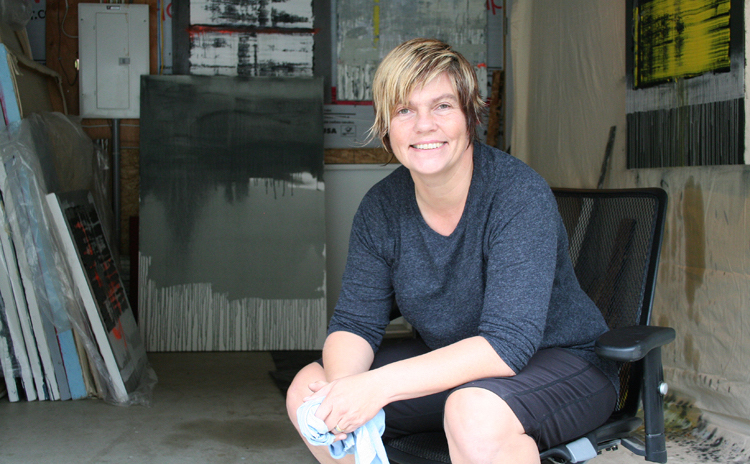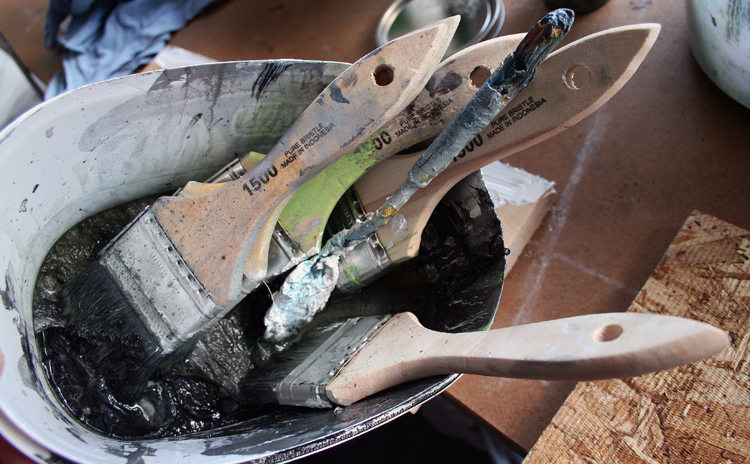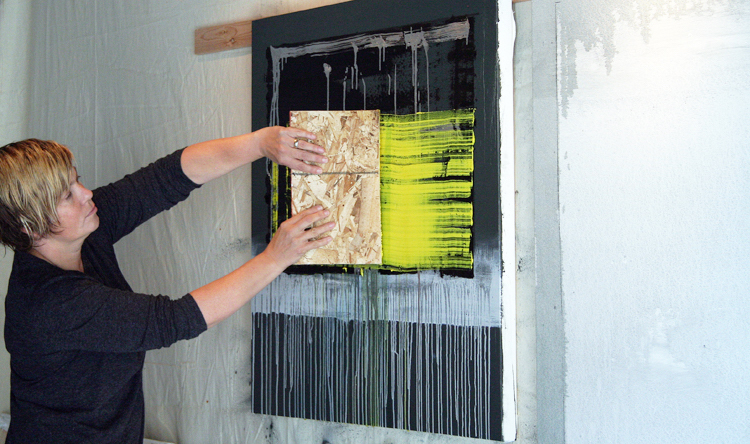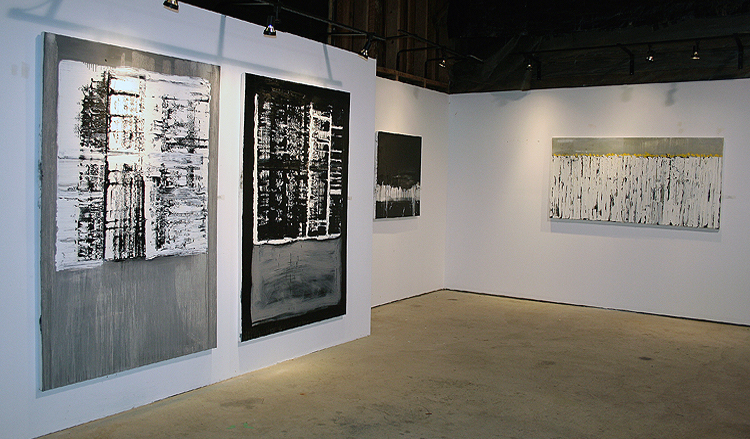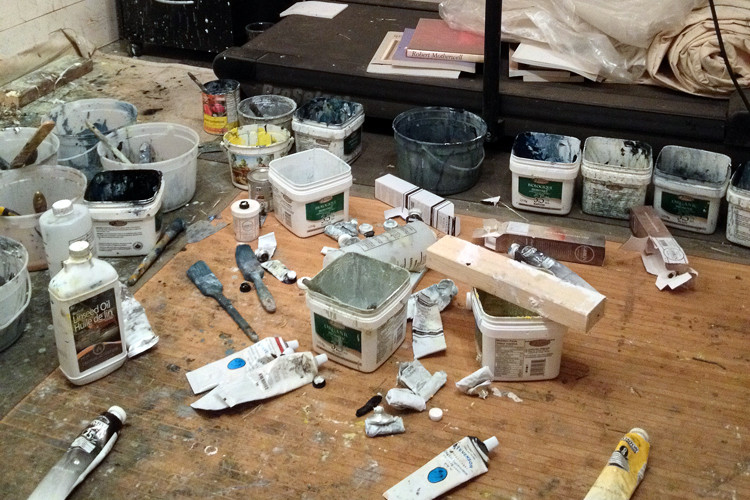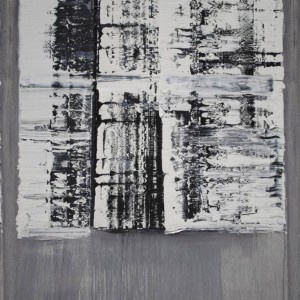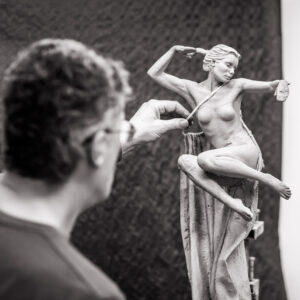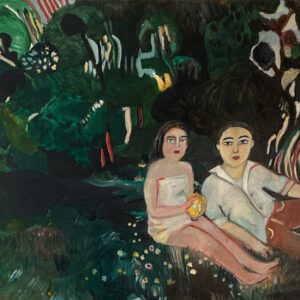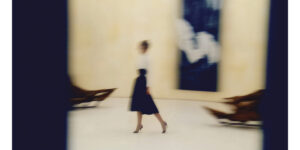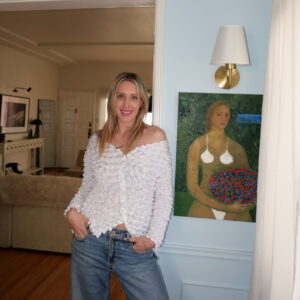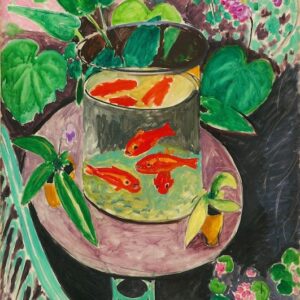Inside the Studio
 Danie Wood
Danie Wood
What are the major themes you pursue in your work?
Oil paint, because of its organic nature, needs flexibility to show the process of the art making. In fact, that is why I use oil paint. It is organic, always moving, never drying, always cracking. The more raw the paint, the better. I am fully aware that when I paint, I am mark-making. I communicate that idea through the showing of the edges and unpainted areas and the inclusion of other organic material. It’s about experience, about the process of the “doing.” I believe that this gives the viewer time to ponder a process, an action, a human mark, a mortal coil which in turn grounds them. I have often had insects offer themselves into the paint, and I feel a necessity to leave them there. This is indeed part of my process – the letting go and giving over to the movement of the paint, Jackson Pollock’s technique of “being in the painting.”
“On the floor I am more at ease. I feel nearer, more part of the painting, since this way I can walk around it, work from the four sides and literally be in the painting.” – Jackson Pollock
It is a constant uncovering process to find oneself in the canvas, and I am continually striving for the right balance between control and letting go.
It became fairly obvious to me that I was a landscape painter when this persistent horizontal line kept making its way into my work. When I am in the studio, my mind’s eye sees the ocean and mountain views of my Pacific Northwest surroundings and their dramatic, ever-changing atmospheric conditions. As I work on these landscapes, I emotively work into them how I might be feeling about myself, my experiences and/or the world in general.
The economic downfall of the middle classes inspired the “City on Fire” series, where I imagine cities setting themselves on fire in protest to dire economic times. My painting entitled Crying III – SunSet started with the neon orange word, spray painted “Foreclosed.”
In these, I am a voyeur artist watching from afar, creating art of confrontation and catharsis.
What was the best advice given to you as an artist?
“Everything for art!” – Tim Whiten, Professor, York University. When I am unsure, I always remind myself of this phrase, and it gives me the courage to work through whatever life puts in front of me.
Prefer to work with music or in silence?
With music (Jack White, Kid Cudi, The Black Keys, The Clash).
If you could only have one piece of art in your life, what would it be?
Jackson Pollock’s Alchemy (1947).
Who are your favorite writers?
Herman Hesse and Michael Ondaatje. I’m a visual-spatial learner, and I’d rather look at pictures!
